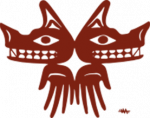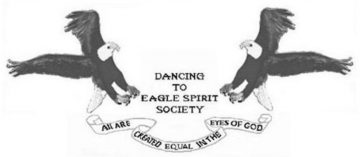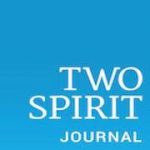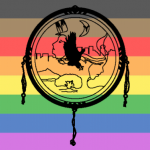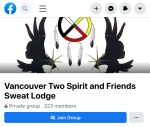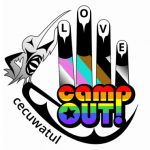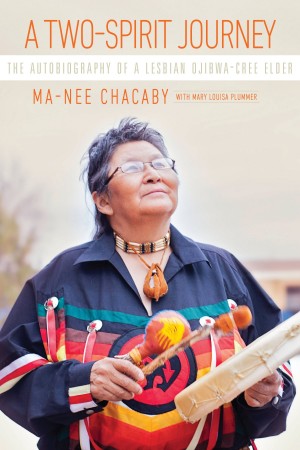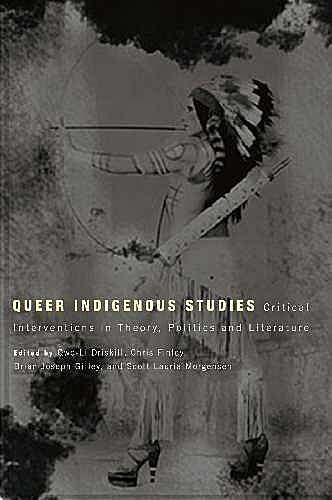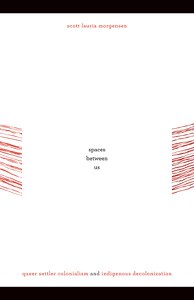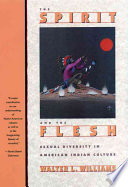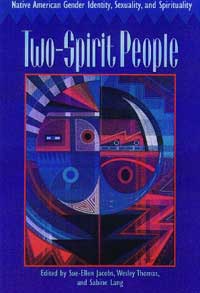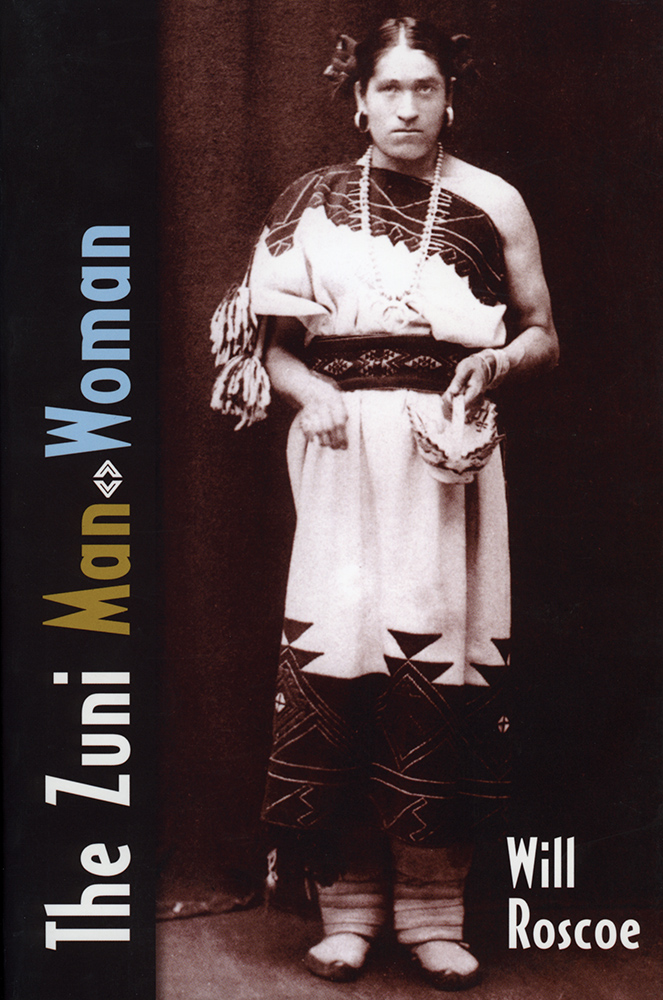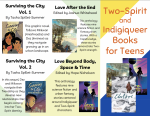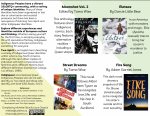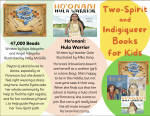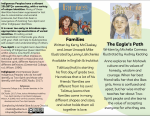The SARAVYC team would like to acknowledge that our place of work is the unceded, occupied, and ancestral territory of the Coast Salish Peoples, including the territories of the xwməθkwəy̓əm (Musqueam), Skwxwú7mesh (Squamish), Stó:lō, and Səl̓ílwətaʔ/Selilwitulh (Tsleil-Waututh) Nations. We are ever grateful to live, work, play, and gather on this land and recognize these Indigenous Nations as the original stewards of the land since time immemorial. We are a team weaved from many diverse backgrounds and experiences, and have been brought together to this land as both uninvited guests and Indigenous Peoples. We honour the lives and people from which our data is born, and feel the utmost responsibility to work in a good way with these communities.
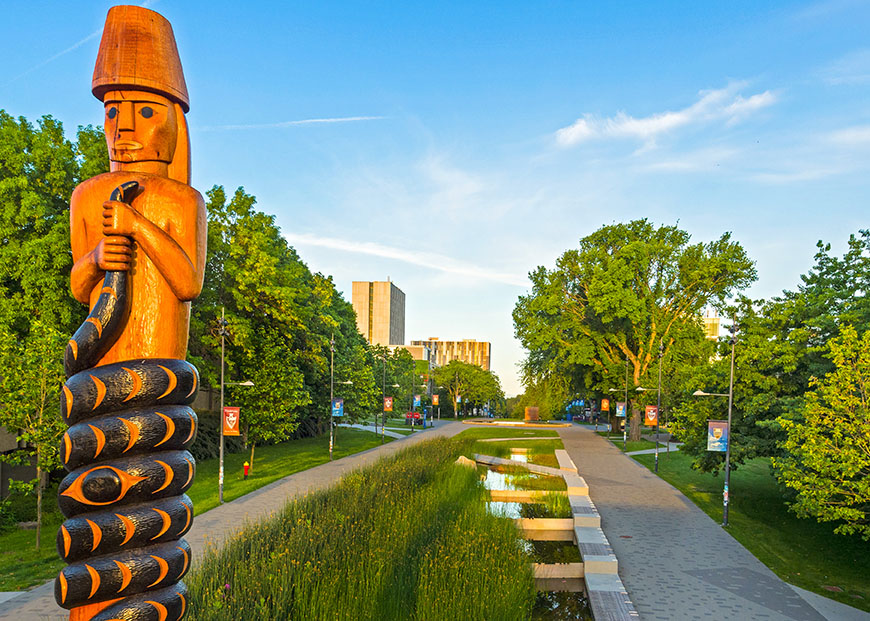
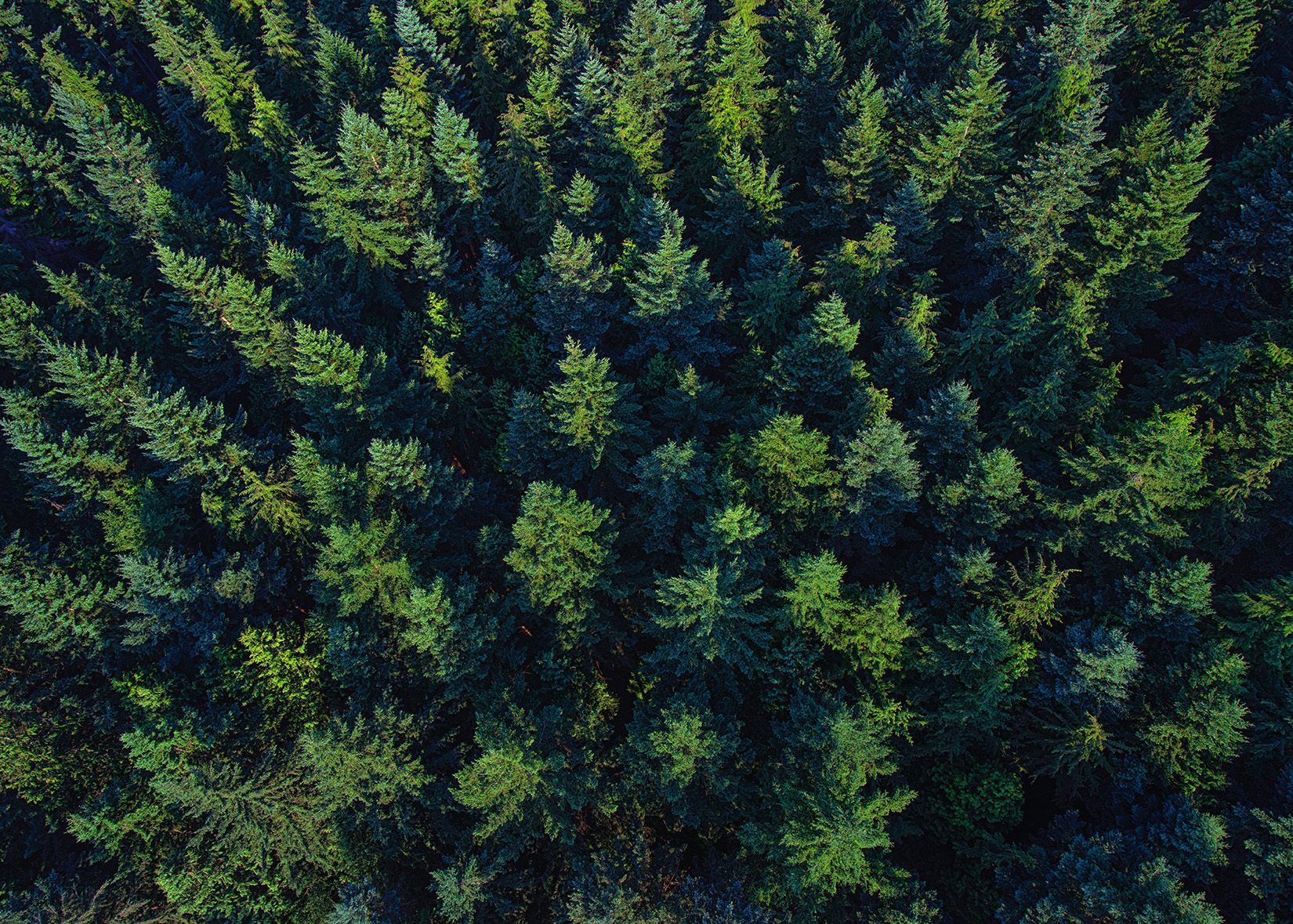
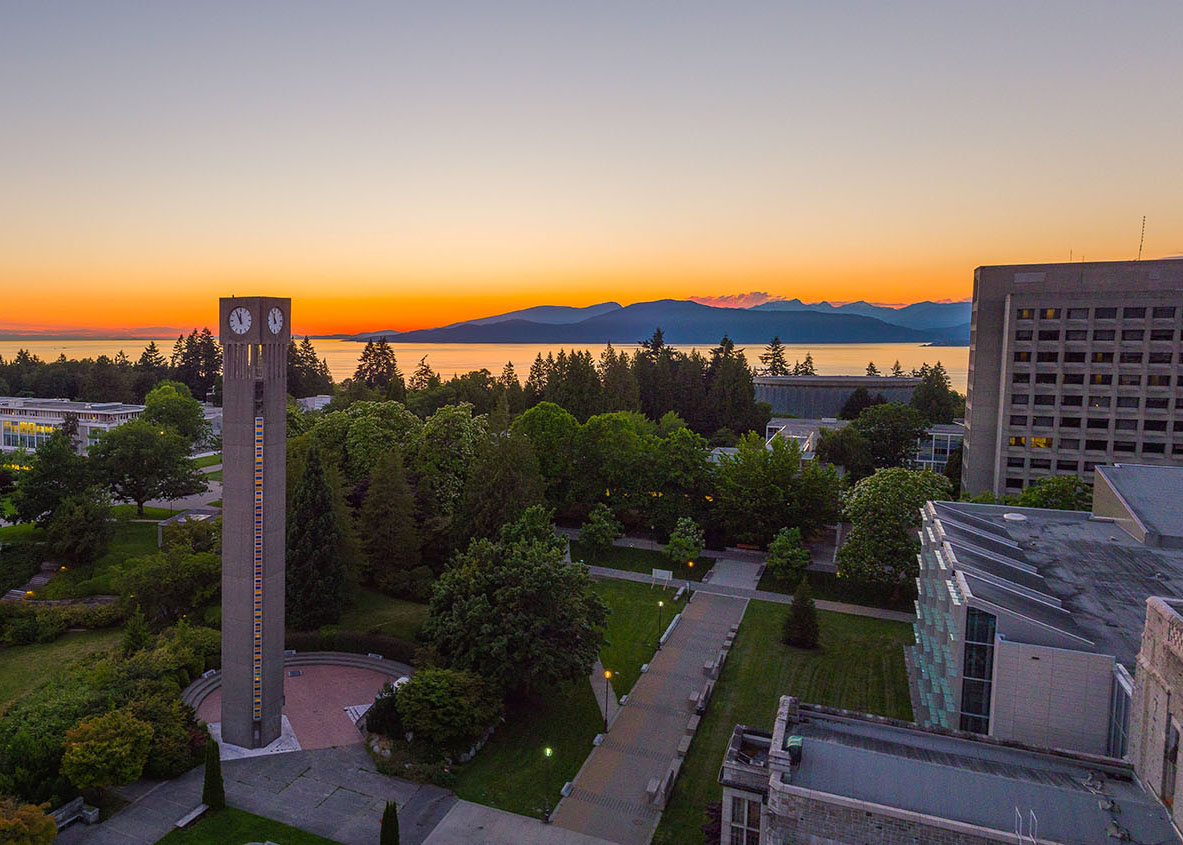
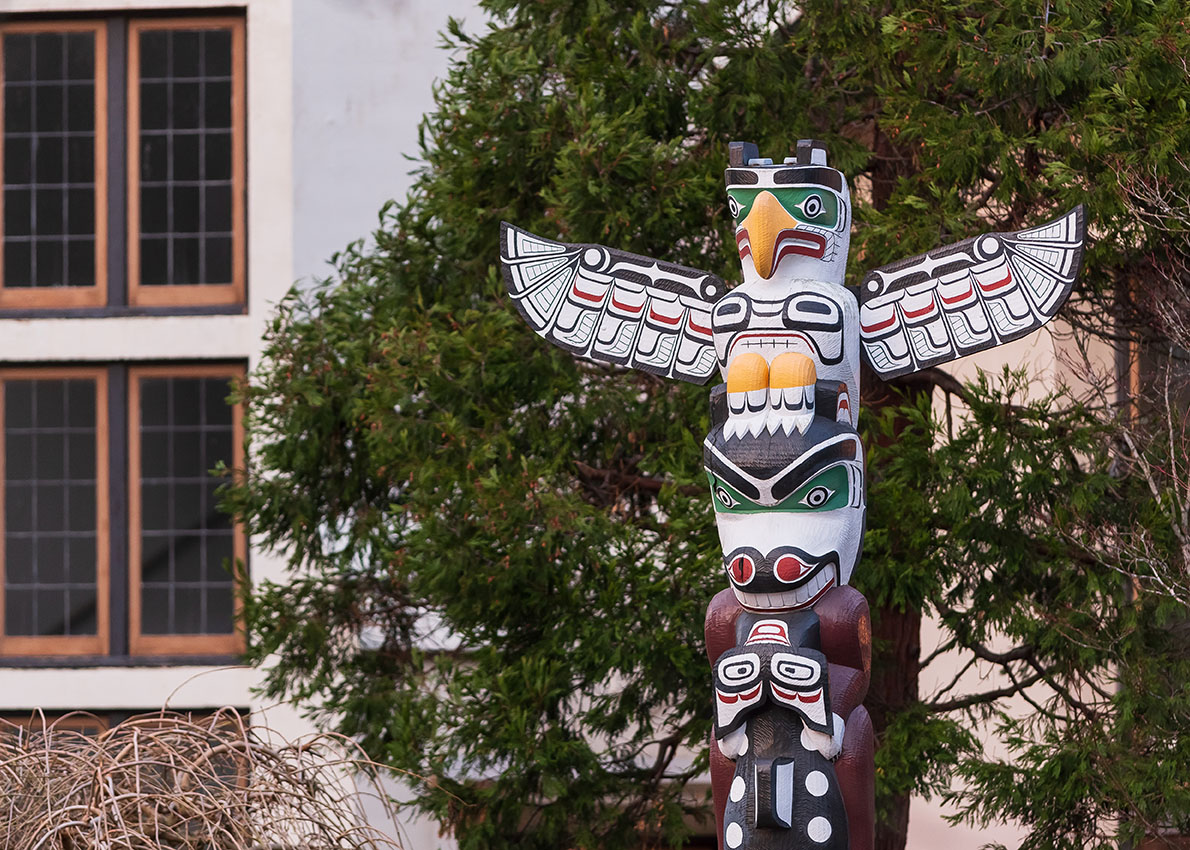
Witnessing Indigenous and Two Spirit Youth Health

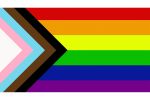
Tracking Health Inequities and Protective Factors for Indigenous and Two Spirit Youth
The SARAVYC team is tracking health inequities and protective factors for Indigenous youth, including those who are Two Spirit, gay, lesbian, queer, and bisexual. The research is part of a larger grant that involves identifying the differences in health outcomes and trends between heterosexual and lesbian, gay, and bisexual (LGB) youth from various ethnoculturally diverse backgrounds and addressing the roles culture, family, schools, and experiences shape our health.
We are working with an Indigenous and Two Spirit advisory committee—composed of youth, family members, health professionals, teachers, counselors, and other community members—to inform our study’s analyses, as well as the resulting knowledge mobilization materials and activities.
Research shows that although LGB youth have poorer mental and physical health outcomes compared to their heterosexual peers, school connectedness and supportive and caring relationships with their families have a positive impact on their health. However, little is known about how health outcomes differ for LGB youth of various ethno-cultural backgrounds, or how sexual orientation might affect relationships between parents and children from different ethnocultural groups.
To address this gap, we will be analyzing data from the BC Adolescent Health Survey to:
- Identify differences in health outcomes and trends between heterosexual and LGB Indigenous youth
- Document the roles of families and schools in health outcomes for Indigenous youth
Principal Investigator: Dr. Elizabeth Saewyc
SARAVYC Team Members: Seren Friskie, Ronita Nath, Mauricio Coronel Villalobos, Brooke Mounsey, Elizabeth Saewyc
Funded by: CIHR (Foundation Scheme) under the grant, “Improving health equity for LGBTQ youth in Canada and globally: Addressing the role of families and culture”, 2017-2024
The data was collected through the BC Adolescent Health Survey (BC AHS), a province-wide survey for youth in grades 7 to 12, which takes place every 5 years since 1992. The BC AHS was developed with help of young people, parents, and experts in youth health, and has been adjusted over time to better suit the needs and characteristics of students. The survey was administered by public health nurses and resource nurses during a 45-minute class period. Participation was voluntary, confidential, and anonymous. A more detailed methodology fact sheet is available on the McCreary website.
It should be noted that the BC AHS was only administered in BC public schools, so it may not be wholly representative of all youth, such as those who attend alternative schools, are homeschooled, or were dealing with challenges that prevented them from being in school. Furthermore, as the survey was only administered in English and on paper, it might also exclude students who are not fluent in English, have certain disabilities, or literacy/comprehension challenges.
In 2018, over 38,000 students participated across 840 schools from 58 (out of 60) school districts all over the province. Of these students, about 10% reported being Indigenous or Aboriginal. Of these youth, 61% were First Nations, 32% were Métis, 2% Inuit, and 6% specified another Indigenous background. Moreover, 1% of Indigenous youth stated they were fluent in an Indigenous language, 3% could speak at a conversational level, and 24% could speak at least a few words.
Almost 40% of Indigenous youth reported that at least one member of their families had been in a residential school, and another 38% did not know. Of those relatives, most were their grandparents (24%) or other family members (22%), and only a few had been their parents (4%).
About 47% of youth identified as cisgender male, 48% as cisgender female, 1% as trans male, less than 1% as trans female, and 4% as non-binary or questioning. Similarly, 77% of youth identified as heterosexual, 6% identified as mostly heterosexual, 10% identified as bisexual or pansexual, 1% identified as gay or lesbian, 5% were unsure, and less than 1% did not feel attracted to anyone. Additionally, 4% of youth identified as Two Spirit, and 54% reported not knowing what Two Spirit means.
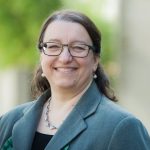
Elizabeth M Saewyc, PhD, RN, FSAHM, FCAHS, FAAN
Executive Director, SARAVYC
Director & Professor, UBC School of Nursing
Research Director, McCreary Centre Society
Learn more

Ronita Nath, PhD
Managing Director, SARAVYC
Learn more
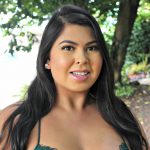
Seren Friskie
Research Assistant, SARAVYC
Learn more
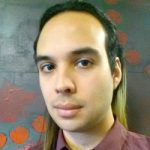
Mauricio Coronel Villallobos, PhD
Post-doctoral Fellow, SARAVYC
Learn more
To help guide the SARAVYC team with our work, we have established a Two Spirit Advisory Council. Membership of the council consists of leading Two Spirit researchers, self-identified members, and those who provide support and education as well as advocacy for 2S youth. Read more about our collaborators and advisory members below! The advisory also includes three anonymous members.

Dana Brunanski, MA, CCC
Child and Youth Wellness Counsellor, Vancouver Aboriginal Child and Family Services Society
Clinical Counsellor, Private Practice
Dana Brunanski (she/her) has Metis and European settler roots, and is a single parent of a 6-year-old. She has been a front-line youth worker and counsellor in Vancouver for 23 years, including street outreach, addictions, and mental health counselling, and most recently, wellness counselling at an urban Indigenous child welfare organization. Her research journey began in 1997 with a self-reflective SFU psychology honours thesis on bisexual women’s identity. In 2009, she completed her UBC Counselling Psychology Masters research which explored Indigenous street youths’ experiences with counselling, using an Indigenizing narrative methodology. Dana has been associated with SARAVYC since 2007, starting as a graduate student trainee and research assistant, then continuing as a community research affiliate after completing her Masters. She also came back briefly as a research technician in 2017, to coordinate the Indigenous Two-Spirit Advisory, and has continued as an advisory member since that time.
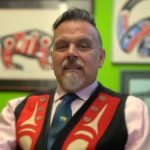
Davie Kirk
Indigenous Faculty Advisor and Instructor, Capilano University
I am originally from the Tzeachten First Nation which is part of the Sto:lo Nation in the Fraser Valley. I grew up in Vancouver and as an adult I am now connected to my home community and culture. It is those connections that are integral to Indigenous people. I also identify as a Two-Spirited man. For the last 14 years, my role is Indigenous Faculty Advisor and Instructor for Capilano University, but I also continue to be an advocate for Indigenous learners on campus and in the community.
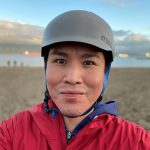
Dustin Moise
Policy Coordinator, Strategic Policy, FNHA
Dustin Moise (Dakelh/Carrier from Nak’azdli Whut’en), works as a Policy Coordinator with the Strategic Policy team supporting the work towards educating and promoting a harm reduction approach to cannabis, vaping and commercial tobacco, as well, implementing the Indigenous Cancer Strategy to improve Indigenous cancer journeys in BC. In his spare time, Dustin enjoys being active on the land by hiking, biking, or running, as well as keeping fit in 2SLGBTQQIA+ sports leagues like the West End Slo-pitch Association and Vancouver Gay Volleyball Association.
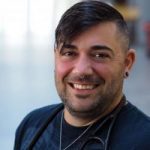
Fin Gareau
Nurse Practitioner, Indigenous Primary Health and Wellness Home, FRAFCA
Fin Gareau is a trans, Indigenous Two Spirit Nurse Practitioner originally from Prince Albert, Saskatchewan, who fully embraces the importance of community reciprocity. He has worked with gender diverse adults and youth and their families for over 15 years. His previous work included outreach/street nursing in the downtown eastside of Vancouver and he has worked as an NP in Island Health. Fin currently works at the Indigenous Primary Health and Wellness Home out of the Friendship Centre in Surrey BC (FRAFCA). He is honoured to be granted the privilege of providing primary health care for urban Indigenous community, and to trans and non-binary community as well. One of Fin's current focuses in his practice is to work to identify and deconstruct persistent colonized structures and ideologies of health within dominant medical systems, specifically in Indigenous and trans health care in BC.
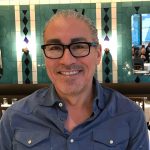
Harlan Pruden, BA
Indigenous Knowledge Translation Lead, Chee Mamuk, BCCDC
Harlan Pruden (nēhiyo/First Nations Cree Nation), works with and for the Two-Spirit community locally, nationally and internationally. Currently, Harlan is the Indigenous Knowledge Translation Lead at Chee Mamuk, an Indigenous health program at BC Centre for Disease Control and is also a co-founder of the Two-Spirit Dry Lab, North America’s first research group/lab that exclusively focuses on Two-Spirit people, communities and/or experiences.
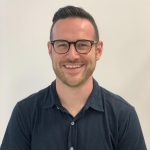
Jessy Dame, RN(c), MSN
Certified Registered Nurse, Vancouver Coastal Health
Jessy Dame is a very proud Two-Spirit, Métis, Certified Registered Nurse. Jessy’s family is from Treaty 1 and 2 territory, which is known today as Winnipeg and St Rose-du-lac. Jessy has worked within Neonatal/Postnatal health. He currently works casually within a queer sexual health clinic in downtown Vancouver and as the Two-Spirit Program Manager at the Community-Based Research Centre. Within this position, Jessy is able to work with and for the Two-Spirit community to create resources and advocate for services.
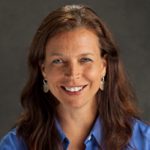
Karina Walters
Professor, Katherine Hall Chambers Scholar
Co-director, Indigenous Wellness Research Institute
Karina L. Walters, an enrolled member of the Choctaw Nation of Oklahoma, has more than 25 years of experience in social epidemiological research on the historical, social, and cultural determinants of health among AIAN populations as well as chronic disease prevention research (e.g., HIV, AOD, obesity). Much of this social epidemiological work has targeted urban AIANs and LGBT-Two Spirit AIAN populations across the United States. Dr. Walters has since expanded her research focus to include tribally based intervention research in the areas of substance abuse, obesity, diabetes, and HIV/AIDS prevention, particularly among American Indian women. Dr. Walters has presented at more than 360+ national and international conferences; was an invited speaker for Wednesday Afternoon Lecture Series at the NIH; and was a Fulbright scholar at the University of Auckland, New Zealand.
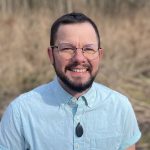
Kyle Shaughnessey
Indigenous Educational Consultant, UBC
Kyle Shaughnessy is a Two-Spirit, trans person of Indigenous (Dene) and mixed European (Irish, Ukrainian) ancestry. He is a social worker and writer originally from all over the NWT and small town BC, and has been supporting trans and Two-Spirit youth and their families since 2001. He is currently completing his Master of Social Work degree at Dalhousie University, focusing his research on Two-Spirit teaching & learning as healing, and works as an Indigenous Education Consultant at the University of British Columbia.
Are you in a crisis or an emergency?
If you are in an emergency, or feel that you or someone else is at risk of harm, please contact someone immediately:
Call 911 for help right away

Indian Residential School Survivors Society
A provincial organization that provides essential services to Residential School Survivors, their families, and those dealing with Intergenerational traumas. Indigenous trans, Two Spirit and other LGBTQ+ Indigenous people are able to connect with their Resolution Health Support Worker and LGBTQ+ Liaison for support, interim counselling, and cultural connection and ceremony. To access this program ask to be connected with the LGBTQ+ Liaison by:
- Drop-in: 44 E Cordova in Vancouver
- Call: 1-800-721-0066
- Email: reception@irsss.ca
- The National Indian Residential School Crisis Line: 1-866-925-4419
KUU-US Crisis Line Society
24-hour crisis line for adults, elders, and youth.
- Toll Free: 1-800-588-8717
- Adults/Elders: 250-723-4050
- Child/Youth: 250-723-2040
- Métis Line: 1-833-MétisBC
Tsow-Tun-Le--Lum Society
Substance Abuse and Trauma Treatment Centre providing confidential outreach services such as counselling and cultural support by phone, video, or other means as possible.
- Toll Free: 1-888-403-3123
- Main Office: 250-390-3123
- Facebook: https://www.facebook.com/ttllnanaimo
Foundry BC
Virtual drop-in counseling for young people across British Columbia
- Toll Free: 1-833-308-6379
FN/Inuit Hope for Wellness Helpline
The Hope for Wellness Help Line offers immediate mental health counselling and crisis intervention to all Indigenous peoples across Canada.
- Phone: 1-855-242-3310
- Chat: https://www.hopeforwellness.ca/
Resources from Reconciliation Canada
A list of resources compiled by the team at Reconciliation Canada.
![]()
Kids Help Phone
Immediate and caring support, information and, if necessary, referral to a local community or social service agency. The 24-hour distress line is staffed by counsellors and trained volunteers who are committed to helping youths in crisis.
- Phone: 1-800-668-6868 (Available in English, French, and Arabic)
- Text: Text CONNECT to 686868
- Peer-to-Peer Forums: https://peertopeer.kidshelpphone.ca/?_ga=2.232386460.2029401295.1627420879-482794993.1627420879
- Facebook Messenger: https://kidshelpphone.ca/get-virtual-support-with-facebook-messenger
- Live Chat: https://kidshelpphone.ca/live-chat-counselling/
Dancing to Eagle Spirit Society
A Vancouver-based organization dedicated to healing and empowerment of Two Spirit individuals.
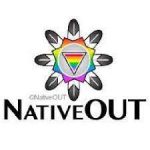
Native OUT
A non-profit education and media organization, actively involved in the Two Spirit movement. They use the internet, through their website, multimedia, and social networks to educate about the Indigenous LGBTQ+ and Two Spirit peoplea of North America.

The Native Youth Sexual Health Network
An organization by and for Indigenous youth that works across issues of sexual and reproductive health, rights and justice throughout the United States and Canada. They conducted a national campaign for First Nations youth across Canada to fight homophobia and normalize healthy sexuality. Includes free Two Spirit posters to download.
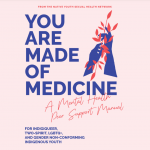
You Are Made of Medicine: A Youth Mental Health Peer Support Manual
A Mental Health Peer Support Manual for Indigiqueer, Two Spirit, LGBTQ+, and Gender Non-Conforming Indigenous youth.

University of Calgary Two Spirit Information Pages
A great site for researching articles and information on Two Spirit and Indigenous issues, hosted by the University of Calgary.
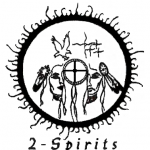
Two Spirited People of the First Nations
Provides prevention education and support for Two Spirit people, including First Nations, Métis, and Inuit people living with or at risk for HIV and related co-infections in the Greater Toronto Area. Work is based on Indigenous philosophies of holistic health and wellness.
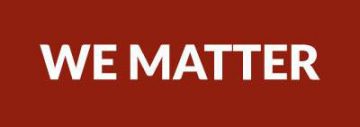
We Matter Two Spirit Dictionary
A collection of definitions celebrating Two Spirit diversity and expression.
Are you interested in our research? Do you want to get involved? Are you looking to collaborate or learn more? Contact Seren Friskie at seren.friskie@ubc.ca.
Witness Two Spirit
What is Two Spirit?
“Two Spirit” is a term used within some Indigenous communities, encompassing cultural, spiritual, sexual, and gender identity. The term reflects complex Indigenous understandings of gender roles, spirituality, and the long history of sexual and gender diversity in Indigenous cultures. Individual terms and roles for Two Spirit people are specific to each nation.
The word “Two Spirit” was created in the early 1990s, by a group of Two Spirit community members and leaders. Due to its cultural, spiritual, and historical context, the concept of “Two Spirit” is to be used only by Indigenous people. However, not all Indigenous people who hold diverse sexual and gender identities consider themselves Two Spirit, many identify themselves as LGBTQ+.
Before colonization, Two Spirit people were included and respected as valued community members, often holding revered roles such as healers, matchmakers, and counsellors, among many others. As part of the colonization process, there has been an attempted erasure of Two Spirit people. The western religious values and belief systems that were imposed on Indigenous people condemned any sort of sexual or gender diversity, and Two Spirit people were killed or forced into assimilation and hiding. One of many lasting impacts of colonization on Two Spirit people, is an increased level of homophobia and transphobia within many Indigenous communities, which can often cause Two Spirit people to leave their home communities (and subsequently, their families, land, and culture).
The role of Two Spirit people in Indigenous communities is now being reclaimed, and it is becoming increasingly recognized that homophobia and transphobia are in direct contradiction with most traditional Indigenous values. Reclaiming the traditional roles and value placed on Two Spirit people’s gifts, is part of a larger healing process taking place within Indigenous communities. As part of this reclamation, there has been a resurgence of Two Spirit leadership, resources, community organizations and events, as well as recognition and representation within LGBTQ+ communities and Indigenous communities. Please have a look at our resources section below to find out more about our work and Two Spirit resources.
Want to learn more?
Two Spirit Journal (2SJ)
An interactive multi-platform Two Spirit media/news site.
Two Spirit Resource Directory
A directory of national and international resources created by the Two Spirit Journal.
Two Spirit Mental Health Peer Support Manual
A Mental Health Peer Support Manual for Indigiqueer, Two Spirit, LGBTQ+, and Gender Non-Conforming Indigenous youth.
UNYA's Two Spirit Collective
An Urban Native Youth Association program providing support, resources, and programming for Indigenous youth, ages 15 to 30, who identify as Two Spirit or LGBTQ+, and for those who are questioning their sexual or gender identities. Contact the 2-Spirit Collective at 604-254-7732 or 2spirit@unya.bc.ca.
Dancing to Eagle Spirit Society
Trans positive and inclusive ceremonies led by Tsleil-Waututh, Two Spirit, and trans elder on Tsleil-Waututh Territory. Contact Sandy Leo Laframboise at dancingtoeaglespirit@gmail.com or 778-319-3965.
Two Spirit Sweat Lodge
Held on Squamish Territory (North Vancouver) for Two Spirit folks and allies. Contact Bon Fabian at bonsfab@gmail.com or 604-700-6751.
CampOUT!
Social justice summer camp for queer, trans, Two Spirit, and allied youth from British Columbia and the Yukon. Takes place every July near Vancouver, leadership and camper applications begin in February.
A Two-Spirit Journey: The Autobiography Of A Lesbian Ojibwa-Cree Elder
Ma-Nee Chacaby & Mary Louisa Plummer
2016
A Two-Spirit Journey is Ma-Nee Chacaby’s extraordinary account of her life as an Ojibwa-Cree lesbian. From her early, often harrowing memories of life and abuse in a remote Ojibwa community riven by poverty and alcoholism, Chacaby’s story is one of enduring and ultimately overcoming the social, economic, and health legacies of colonialism.
Queer Indigenous Studies: Critical Interventions in Theory, Politics, and Literature
Edited by Qwo-Li Driskill, Chris Finley, Brian Joseph Gilley, and Scott Lauria Morgensen
2011
“This book is an imagining.” So begins this collection examining critical, Indigenous-centered approaches to understanding gay, lesbian, bisexual, transgender, queer, and Two Spirit (GLBTQ2) lives and communities and the creative implications of queer theory in Native studies.
Spaces between us: Queer settler colonialism and Indigenous decolonization
Scott Lauria Morgensen
2011
Explaining how relational distinctions of “Native” and “settler” define the status of being “queer,” Spaces between Us argues that modern queer subjects emerged among Natives and non-Natives by engaging the meaningful difference indigeneity makes within a settler society. Scott Lauria Morgensen demonstrates the interdependence of nation, race, gender, and sexuality and offers opportunities for resistance in the U.S.
Spirit and the Flesh: Sexual Diversity in American Indian Culture
Walter L. Williams
1992
Gay Book of the Year Award, American Library Association
Ruth Benedict Award, Society of Lesbian and Gay Anthropologists
Award for Outstanding Scholarship, World Congress for Sexology
Two-Spirit People: Native American Gender Identity, Sexuality, and Spirituality
Edited by Sue-Ellen Jacobs, Wesley Thomas, and Sabine Lang
1997
Ruth Benedict Prize for an edited book, Society of Lesbian and Gay Anthropologists
This landmark book combines the voices of Indigenous and non-Indigenous, anthropologists and others, in an exploration of gender and sexuality issues as they relate to 2S/LGBTQ+ Indigenous Peoples.
The Zuni Man-Woman
Will Roscoe
1992
The Zuni Man-Woman focuses on the life of We'wha (1849-96), the Zuni who was perhaps the most famous Two Spirit person (an individual who combined the work and traits of both men and women) in Indigenous history. Through We'wha's exceptional life, Will Roscoe creates a vivid picture of an alternative gender role whose history has been hidden and almost forgotten.
Two Spirit and Indigiqueer Books for Teens
Surviving the City Vol. 1
Tasha Spillet-Summer
This graphic novel follows Miikwan (Anishinaabe) and Dez (Inninew) as they navigate growing up in an urban landscape.
Surviving the City Vol. 2
Tasha Spillet-Summer
In this sequel, Dez and Miikwan navigate their friendship as they develop new relationships. Dez begins coming into her Two Spirit identity.
Love After the End
Edited by Joshua Whitehead
This anthology features nine science fiction and fantasy short stories. With a hopeful edge, these stories demonstrate Two Spirit strength.
Love Beyond Body,Space & Time
Edited by Hope Nicholson
This anthology features nine science fiction and urban fantasy stories centered around Indigiqueer and Two Spirit characters.
Moonshot Vol. 2
Edited by Tama Wise
This anthology features short Indigenous comics. Each story features alternative realities -including a Queer utopia.
Elatsoe
Darcie Little Bear
In an America with monsters and magic, Ellie(Apache, asexual) tries to bring her cousin's murderer to justice.
Street Dreams
Tama Wise
This novelfollows Māori teen Tyson as he navigates love, life, and hip-hop in South Auckland.
Fire Song
Adam Garnet Jones
This dark novel shares a snapshot of life for Shane(Anishinaabe) as he navigates his sister's suicide and his own sexuality.
Two Spirit and Indigiqueer Books for Kids
47,000 Beads
Written by Koja Adeyoha and Angel Adeyoha | Illustrated by Holly McGillis
Peyton (Lakota) loves to dance, especially at Powwow, but she doesn't feel right wearing a dress anymore. Auntie Eyota asks her whole community for help to find the right regalia, and for her non-binary friend L to help guide Peyton on her Two Spirit path.
Ho'onani: Hula Warrior
Written by Heather Gale | Illustrated by Mika Song
Ho'onani (Hawaiian) doesn't see herself as a wahine (girl) or a kane (boy).
She's happy to be in the middle, but not everyone sees it that way. When she finds out that her school is having a hula chant performance, she wants to join. But can a girl really lead the all-male troupe? Ho'onani has to try.
Families
Written by Kerry McCluskey and Jesse Unaapik Mike | Illustrated by Lenny Lishchenko | Available in English & Inuktitut
Talittuq (Inuk) is starting his first day of grade two. He notices that a lot of his friends' families are different from his own! Talittuq learns that families come in many different shapes and sizes, and what holds them all together is love.
The Eagle's Path
Written by Michelle Corneau | Illustrated by Audrey Keating
Anna explores her Mohawk culture and its values of honesty, wisdom, and courage. When her best friend tells her that she likes girls, Anna is confused and upset, but her wise mother teaches her about Two Spirit people and she learns the value of accepting everyone for who they are.
Face to Face with Jack Saddleback
2014
A short documentary about Jack Saddleback, a Cree Two Spirit transgender man. Assigned female at birth, he came to understand that his inner identity didn’t match his outer experience.
Meeting Ground - Journey of Indigenous Gender Identity
2014
In this series for News Talk Radio's Meeting Ground we take the journey of Indigenous gender identity tracing gender diverse First Nations people (or Two Spirit) through their lives pre-contact and then after residential schools. We learn what that journey means for the future of Two Spirit people on Turtle Island today.
Regalia - Pride in Two Spirits
2015
Duane Stewart-Grant, who is from X̌àʼislakʼala (Haisla) and nuučaan̓uł (Nuu-chah-nulth) First Nations in Canada explores his identity as someone who is Two Spirit. He talks about how before the colonial era, First Nations people revered the Two Spirit identity, as they were viewed as embodying both the female and male spirits.
Two Hard Things, Two Soft Things
2016
iTunes release summer 2018
As a small group in Nunavut, Canada prepare for a seminal LGBTQ Pride celebration in the Arctic, the film explores how colonization and religion have shamed and erased traditional Inuit beliefs about sexuality and family structure and how, 60 years later, a new generation of Inuit are actively ‘unshaming’ their past.
Two Spirits
2009
A documentary exploring the cultural context behind a tragic and senseless murder of a young Two Spirit Navajo person.
Two Spirits, One Voice
EGALE
2016
Two Spirits, One Voice is an initiative that seeks to bolster support for persons that identify both as LGBTQI and Indigenous –Two Spirit people. This video, funded through both theTegan and Sara Foundation and Laidlaw Foundation, attempts to educate the general public on the history and barriers that impact Two Spirit people in Canada.
Two Spirits in Motion Forum
2003
A 20-minute documentary of the 2003 Two Spirits in Motion Forum.
Second Stories - Deb-we-win Ge-ken-am-aan, Our Place in the Circle
2008
Lorne Olson's short documentary presents a vision he had of Two Spirited people dancing, laughing, and smiling. His vision spurs him to rediscover the strength of the past to better face the challenges of today. This funny and buoyant film documents his touching journey.
Driskill, Qwo-Li. (2011) "Doubleweaving Two Spirit Critiques: Building Alliances between Native and Queer Studies." GLQ: A Journal of Lesbian and Gay Studies, vol. 16 no. 1, 2010, pp. 69-92. Project MUSE, muse.jhu.edu/article/372445.
Frazer, M. Somjen and Pruden, Harlan. (2010). Reclaiming Our Voice :Two Spirit Health & Human Service Needs in New York State. NYS DOH AIDS Institute: Albany, NY.
Sarah Hunt & Cindy Holmes (2015) Everyday Decolonization: Living a Decolonizing Queer Politics, Journal of Lesbian Studies, 19:2, 154-172.
Hunt, S. (2016). An Introduction to the Health of Two Spirit People: Historical, contemporary and emergent issues. Prince George, BC: National Collaborating Centre for Aboriginal Health.
Ristock, Janice & Zoccole, Art & Passante, Lisa & Potskin, Jonathon. (2017). Impacts of colonization on Indigenous Two Spirit/LGBTQ Canadians' experiences of migration, mobility and relationship violence. Sexualities.
Ayden I. Scheim, Randy Jackson, Liz James, T. Sharp Dopler, Jake Pyne, Greta R. Bauer, (2013) Barriers to well-being for Aboriginal gender-diverse people: results from the Trans PULSE Project in Ontario, Canada, Ethnicity and Inequalities in Health and Social Care, Vol. 6 Issue: 4, pp.108-12.
Wesley, D., & Morgensen, Scott. (2015). Reimagining Two Spirit Community: Critically Centering Narratives of Urban Two Spirit Youth, ProQuest Dissertations and Theses.
Wesley, Saylesh. (2014) Twin-Spirited Woman: Sts'iyo´ye smestı´yexw slha´:li. TSQ: Transgender Studies Quarterly 1.3: 338-351.
Wilson, A. (2008). N'tacimowin inna nah': Our Coming In Stories. Canadian Woman Studies, 26(3/4), 193-199.

